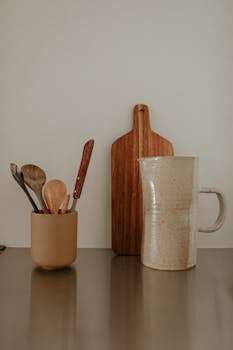Can You Put Wooden Spoons in the Dishwasher?
When it comes to kitchen utensils, wooden spoons are a classic choice for home cooks everywhere. They’re versatile, durable, and gentle on cookware, making them a go-to tool for stirring, mixing, and serving. But when it comes to cleaning, many people wonder: can you put wooden spoons in the dishwasher? In this blog post, we’ll explore the ins and outs of washing wooden spoons in the dishwasher and provide some tips for keeping them in tip-top shape.
The Debate: Dishwasher vs. Handwashing
The debate over whether or not to put wooden spoons in the dishwasher is a hot topic among home cooks. Some people swear by the convenience and efficiency of the dishwasher, while others argue that handwashing is the best way to preserve the longevity of wooden utensils.
Pros and Cons of Dishwashing Wooden Spoons
There are pros and cons to both methods of cleaning wooden spoons, so let’s break it down:
Pros of Dishwashing:
– Convenience: Let’s face it, the dishwasher is a time-saver. Simply load up your dirty utensils, press a button, and walk away.
– Sanitization: The high temperatures and detergents in the dishwasher can help kill bacteria and germs on your wooden spoons.
– Water conservation: Dishwashers are generally more water-efficient than handwashing, so you can feel good about saving water.
Cons of Dishwashing:
– Drying out: The heat and moisture in the dishwasher can cause wooden spoons to dry out and crack over time.
– Warping: Wooden spoons may warp or lose their shape in the dishwasher due to the heat and agitation.
– Damage: Harsh detergents and high temperatures can damage the finish and overall appearance of wooden spoons.
Tips for Dishwashing Wooden Spoons
If you decide to put your wooden spoons in the dishwasher, here are some tips to help minimize the risk of damage:
– Use a gentle cycle: Opt for a gentle or eco-friendly cycle on your dishwasher to reduce the risk of warping or cracking.
– Skip the heat: If possible, turn off the heated drying cycle to prevent excessive drying and cracking.
– Avoid harsh detergents: Choose a mild, natural detergent to clean your wooden spoons and avoid any harsh chemicals that could damage the wood.
– Hand dry: After the dishwasher cycle is complete, remove your wooden spoons and hand dry them immediately to prevent any further drying out.
Benefits of Handwashing Wooden Spoons
While dishwashing may be convenient, handwashing is the preferred method for many when it comes to cleaning wooden spoons. Here are some benefits of handwashing:
– Gentle cleaning: Handwashing allows you to control the amount of water and detergent used, ensuring a gentle and thorough clean.
– Preservation: Handwashing helps preserve the natural oils in the wood, keeping your wooden spoons looking and feeling their best.
– Customization: Handwashing gives you the opportunity to use natural cleaning agents like vinegar or baking soda to clean and deodorize your wooden spoons.
Tips for Handwashing Wooden Spoons
If you choose to handwash your wooden spoons, here are some tips to help you do so effectively:
– Use warm, soapy water: Fill a sink or basin with warm water and a mild dish soap to clean your wooden spoons.
– Scrub gently: Use a soft sponge or cloth to scrub your wooden spoons, avoiding harsh scrubbers that could damage the wood.
– Air dry: After washing, allow your wooden spoons to air dry completely before storing them to prevent any moisture buildup.
Conclusion
In conclusion, while you can technically put wooden spoons in the dishwasher, it’s generally best to handwash them to preserve their longevity and appearance. However, if you’re short on time or just prefer the convenience of the dishwasher, following the tips mentioned above can help minimize any potential damage. Whichever method you choose, taking good care of your wooden spoons will ensure that they stay a staple in your kitchen for years to come.
